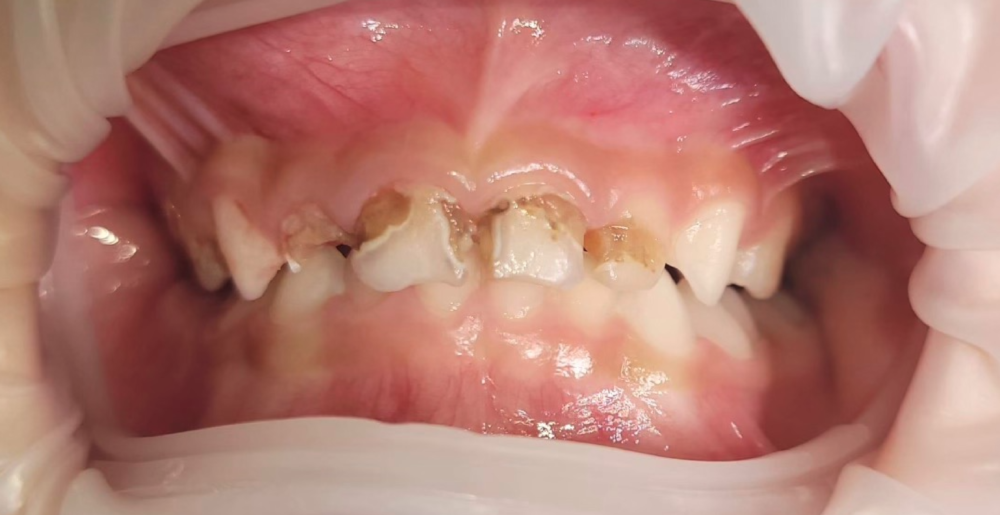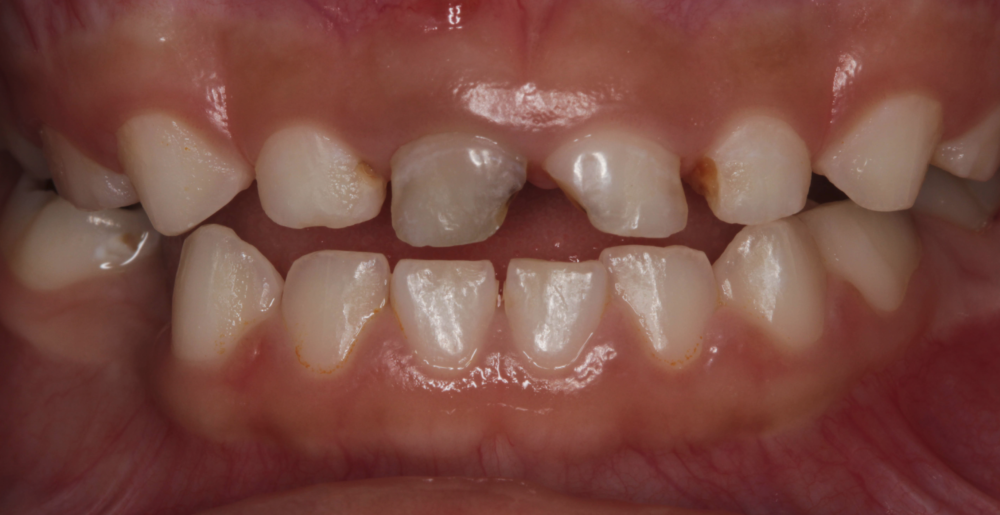Baby Bottle Tooth Decay
Early childhood caries (ECC), also known as baby bottle tooth decay, infant feeding caries, or nursing bottle caries, is very prevalent and refers to tooth decay in young children. You are probably wondering about the relationship between the name bottle with ECC. One of the most common causes of tooth decay in children is that some parents usually send the baby to bed with a bottle of formula or milk in their mouth or breast fee dressing sleep. Therefore, the baby’s teeth are exposed to sugar long enough to make the enamel weak and prone to decay. Saliva is the body’s natural first line of defence against decay, but saliva flow is low during sleep and cannot wash away sugar out of your child’s mouth and prevent tooth decay. This type of decay mostly involves upper anterior teeth especially incisors and upper first primary molars. Lower teeth are mostly protected by the tongue. The best way to protect our kids from ECC is parental education during pregnancy and early consultation with parents to help prevent this type of decay. If it occurs, depending on the severity of the decay and the age of the child, a conservative approach or general anaesthetic will be decided upon.
As a paediatric dentist in Brisbane, my goal is to make sure that parents have a clear understanding of early childhood caries, also known as baby bottle tooth decay so that they can take steps to prevent it from affecting their children’s dental health.
Early childhood caries is a type of tooth decay that is common in young children. It is caused by the prolonged exposure of the teeth to sugar, which can weaken the enamel and make it more susceptible to decay. This often happens when children are sent to bed with a bottle of formula or milk, or when they are breastfed to sleep. The sugar from these drinks can stay in the child’s mouth for a long time, leading to decay.
According to the Brisbane paediatric dentists The teeth that are most commonly affected by early childhood caries are the upper front teeth, especially the incisors, and the upper first primary molars. The lower teeth are usually protected by the tongue. If left untreated, early childhood caries can cause pain, infection, and even tooth loss.
To prevent early childhood caries, it is important to educate parents during pregnancy and early childhood on the importance of good oral hygiene practices and to avoid sending their children to bed with a bottle of formula or milk, or breastfeeding them to sleep. Encouraging children to drink from a cup and limiting sugary drinks and snacks can also help prevent early childhood caries.
Regular dental check-ups are essential to catch any decay early and to ensure that children’s teeth are healthy. If early childhood caries does occur, the treatment will depend on the severity of the decay and the age of the child. A conservative approach or sleep dentistry for children with general anaesthetic may be required.


Remember, saliva is the body’s natural defence against tooth decay, but it flows less during sleep. Therefore, it is important to establish good oral hygiene habits early on and to take steps to prevent early childhood caries from affecting your child’s dental health.
Dr Soha Sharif is a dentist for children in Brisbane, she is an expert in treating early childhood caries. Depending on the severity of the decay and the age of the child, Dr Soha will recommend either a conservative approach or general anaesthetic to treat ECC.
In a conservative approach, Dr Soha will remove the decayed portion of the tooth and fill it with a tooth-coloured filling. This procedure is usually done under local anaesthesia, and children can return to their normal activities right after the appointment.
However, if the decay is severe, general anaesthetic may be required. During the procedure, Dr. Soha will remove the decayed portion of the tooth, and the child will be asleep under general anaesthesia.
Dr. Soha will work closely with you and your child to ensure a comfortable and successful treatment for early childhood caries. Remember, early diagnosis and treatment are crucial in preventing further decay and preserving your child’s dental health.